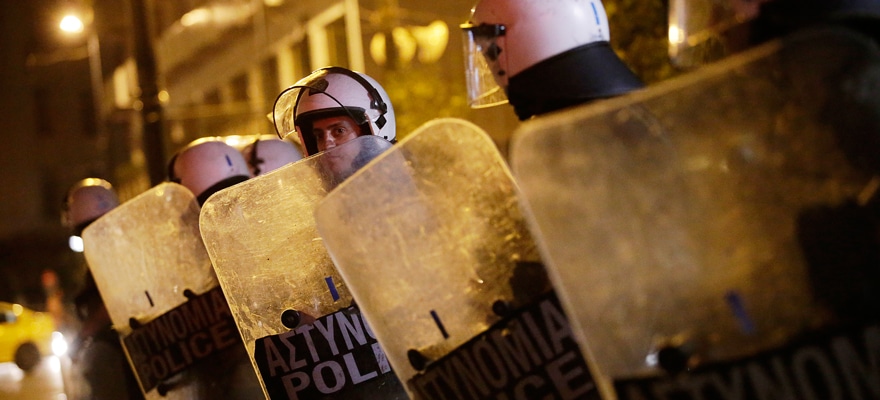The recently forged European bailout plan, and third within a five-year window, summited a major hurdle yesterday after passing through the Greek parliament by a count of 229 of 300 votes. However, despite a tepid Greek endorsement, serious headwinds remain for the country as it begins to recover from the economic calamity endured during the past few weeks.
Thanks in large part to assistance from the Syriza’s opposition party, Prime Minister Alexis Tsipras was able to garner enough support to pass the new bailout measures, thus allaying fears from a number of skeptics across the continent. The vote itself was integral in helping unlock key funding for Greece, which paves the way to Bridge financing to help avert a banking insolvency. On the table as well will be the augmentation of the emergency Liquidity assistance (ELA) lifeline to ‘thirsty’ Greek banks that have virtually dried up.
The Greek population has languished under capital controls and pension rations since the beginning of the month, with the economy slowing to a virtual standstill. Despite yesterday’s anti-austerity protests, the capitulating approval of widely unpopular measures will go a long way in ensuring the reopening of banks that are now in their third week of closure – perhaps more importantly, Greece will remain bound to the Eurozone.
Default Specter Looming
After more than a month of self-imposed deadlines, default warnings, and other developments that have convulsed the Greek population, the latest timetable now sees a payment deadline to the European Central Bank (ECB) as early as Monday.
In the interim, Eurogroup finance ministers will meet to discuss immediate assistance to Greece as early as today in a bid to prevent a banking insolvency or worse. The approval of the newest tranche of bailout funds $94 billion strong will certainly go a long way in helping ensure the payment of previous debt obligations and the stabilization of commerce after effectively grinding to a halt over the past month – or so both sides hope.
The deal itself was heralded with optimism, exasperation, and outright rancor, with such tough measures serving as a bitter pill to swallow for Greek leaders and its population, already in the midst of a recession, whose economy has contracted 25%. Critics range from the International Monetary Fund (IMF) to German Finance Minister Wolfgang Schaeuble, both of whom ultimately see long-term headwinds for Greece absent of any tangible debt relief – currently illegal under EU legal framework.
Spinning the Wheels
The terms of the latest Greek bailout represent the toughest doctrine and stance to date for the beleaguered country. According to a recent IMF report on debt sustainability, Greece will continue its debt vector into unsustainable territory, possibly as high as 200% of its GDP over the next few years. While Eurogroup leaders have left the door open to the prospect of debt reconstruction, an overall write-down at the present was summarily dismissed.
Moreover, the accord hinges on the prospect of securing an effective buffer of collateral, in this instance over $50 billion in state assets from Greece. Unfortunately, the plausibility behind this initiative will be treading on a precarious foundation, notwithstanding the enigmatic structure of Greek property ownership and the logistics of aggregating a valuation even close to the Eurogroup’s target.
Subsequently, the ongoing conundrum of Greek debt relief, coupled with predictions of further economic contraction from even the most optimistic of sources, threatens to bring this situation to a head in the not-so-distant future.
Political Upheaval Coming?
The passage of the bailout measures, most notably on the heels of a steadfast referendum campaign against them by Mr. Tsipras and the Syriza government could also portend a political shakeup in Greece.
Indeed, Mr. Tsipras has seen his parliamentary majority evaporate after a series of defections and resignations, which may suggest he will have to soldier forth with a minority government. Alternatively, a move has not been ruled out of a reshuffle of parties into a government of national unity. Such a decision could be vital to holding together a fragmented base and ensuring a smooth reception of bailout measures and some level of return to normalcy for the Greek population.
Markets were upbeat on the news with European stock indices in positive territory Thursday morning. At the time of writing, the EUR/USD has also fallen below the 1.0900 handle at 1.0897.


















